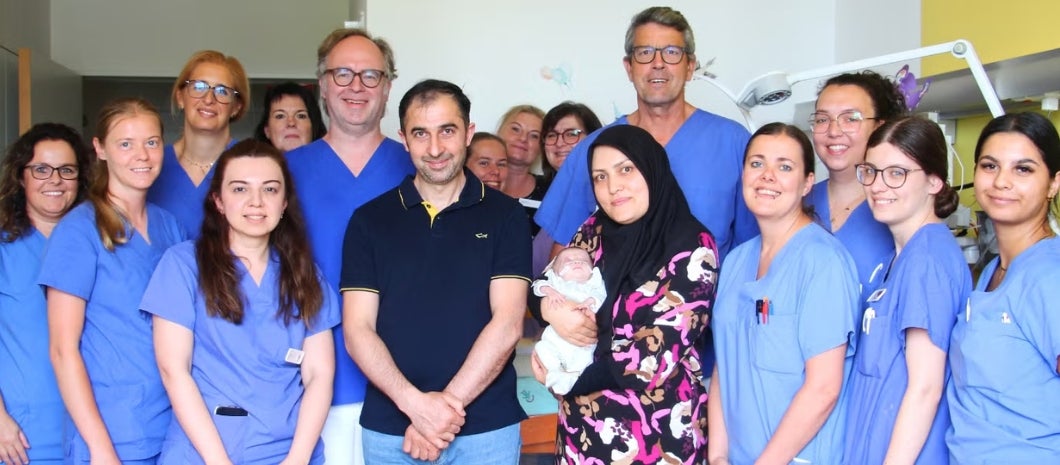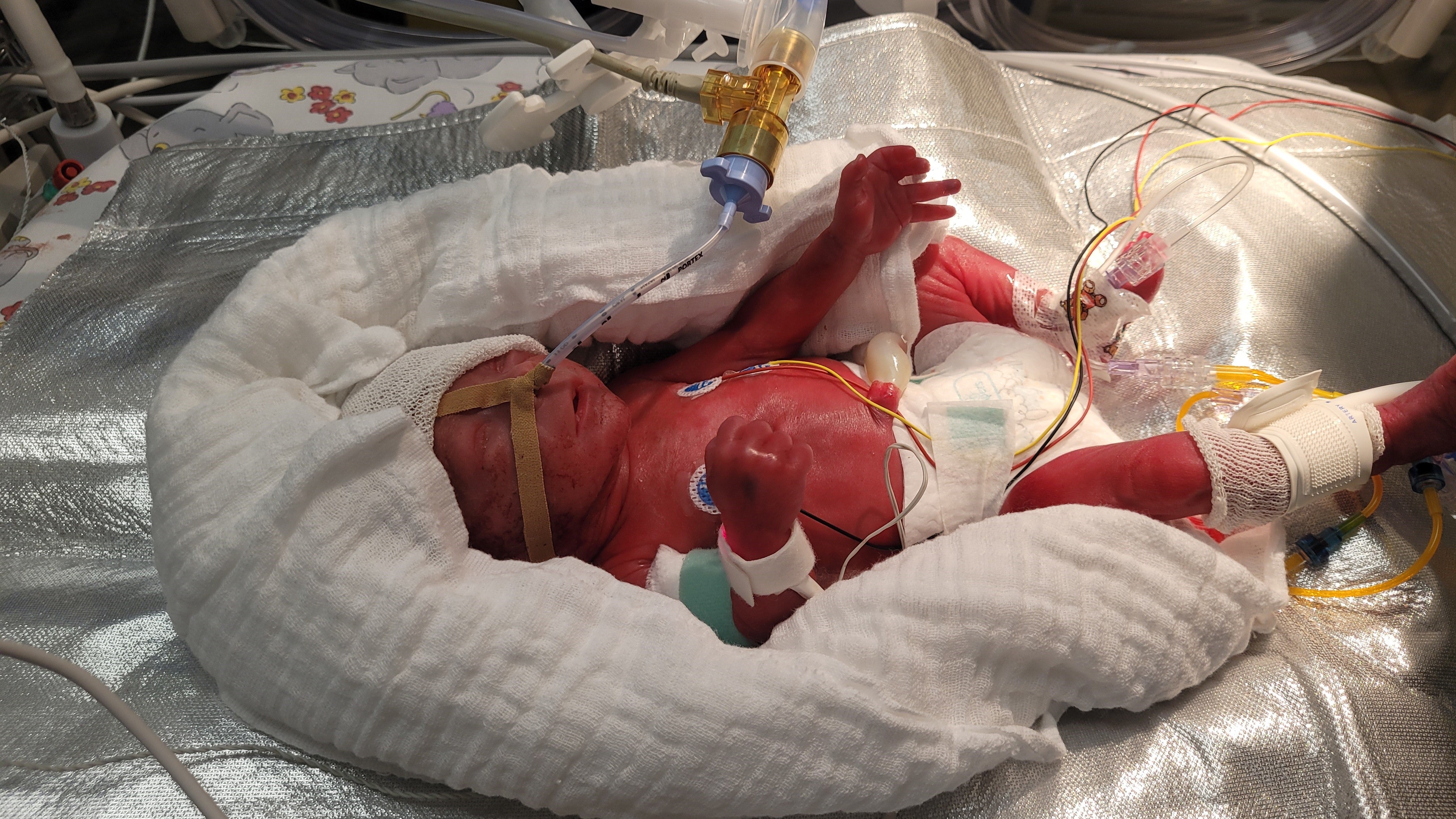

Surgery to resolve a life-threatening diaphragmatic hernia has successfully been performed on a preterm baby weighing little more than 500 grams for the first time ever – an unprecedented procedure and medical breakthrough that brings hope.
Born three months preterm weighing just 490 grams, the little girl was barely bigger than an adult’s hand. Doctors delivered her by C-section on January 23, 2025 after her mother developed pregnancy-related complications. Senior Consultant in Obstetrics and Gynecology Dr. Friederike Senger discovered during an ultrasound before the little girl had even taken her first breath that she had a life-threatening defect. In this condition known as a diaphragmatic hernia, the abdominal organs move up into the chest cavity. This makes breathing almost impossible and would previously have been considered inoperable in such a tiny infant.
“Based on this diagnosis, we had to tell the girl’s parents that their daughter had only a very slim chance of surviving. I assured them, though, that we would do everything medically possible to try to save their tiny newborn,” recalls Dr. Kai Siedler, Chief Physician for Pediatrics and Adolescent Medicine at the Helios hospital in Pforzheim.
An interdisciplinary team from two Helios sites – and a strong will to live
Thanks to highly specialized care with state-of-the-art ventilation technology and special feeding strategies, the neonatal team led by Chief Physician Dr. Kai Siedler and Senior Physician Alexandra Weber successfully stabilized the little girl, saving her life. In the days that followed, they were even able to start giving her breast milk, drop by drop via a tiny feeding tube.
An interdisciplinary team of surgeons and pediatricians from two Helios sites operated on the frail little girl when she was just 19 days old and weighed only 540 grams. Chief Physician Dr. Thomas Ringle and Senior Physician Max Böttinger-Hummel from the pediatric surgery department at Helios Klinikum Pforzheim and Prof. Dr. Stefan Gfrörer, Chief Physician for Pediatric Surgery at Helios Klinikum Berlin-Buch used special magnifying loupes to perform the procedure. They successfully closed the hole in the diaphragm and returned the organs to their correct position – in a newborn whose organs had only just begun to develop.
“We broke new ground with this surgery at such an extremely low birth weight. Without it, the child would have had no chance of surviving. The perfect cooperation between our experienced interdisciplinary team of surgeons, pediatric intensive care physicians, and intensive care nurses was key to its success. Our little patient’s sheer determination to live also impressed us time and again though,” emphasizes Dr. Thomas Ringle.
Aftercare by a highly committed team of nurses
After the successful surgery, the little girl received round-the-clock care from the dedicated nursing team in the pediatric intensive care unit, then on the intermediate care ward. She made excellent progress: There were no complications, her breathing stabilized, she gained weight, and began drinking on her own.
On 3 June, 130 days after her birth, the little patient could be discharged from hospital weighing 2,150 grams. She will continue to be treated as an outpatient and will return to the children’s hospital for any procedures she may need in the future.
Dr. Kai Siedler hails the surgery as a milestone: “This case shows what modern medicine can achieve today – but above all what is possible when a highly motivated team works together. We are proud of everyone involved.”
Despite their tremendous concern, the baby’s parents were always optimistic: “We were terrified that we might lose our child, but we never lost hope. We owe the fact that our daughter is alive today and thriving like she is to the courage and skill of the physicians and the entire pediatric care team. We will forever be grateful that we chose this hospital.”
This success once again highlights the outstanding expertise and exceptional teamwork of the Fresenius Helios staff in caring for high-risk preterm infants. And it should set a precedent: The experience gained from this procedure will be shared with the international medical community.

